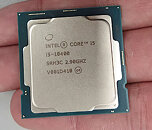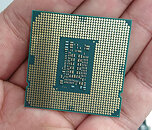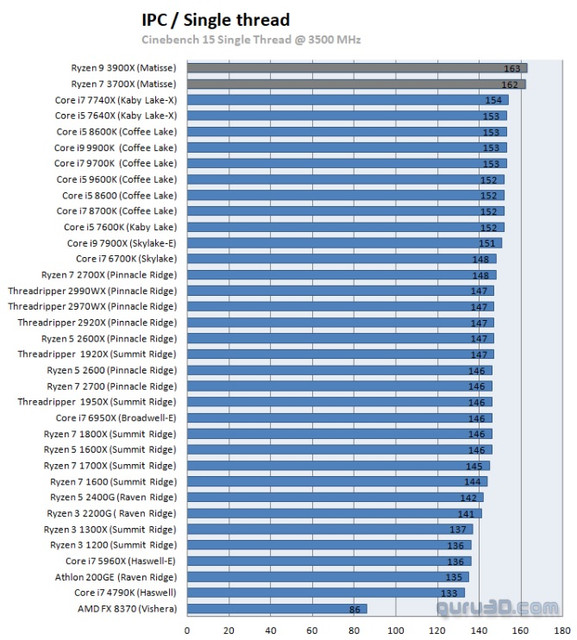- Joined
- Oct 9, 2007
- Messages
- 47,886 (7.38/day)
- Location
- Dublin, Ireland
| System Name | RBMK-1000 |
|---|---|
| Processor | AMD Ryzen 7 5700G |
| Motherboard | Gigabyte B550 AORUS Elite V2 |
| Cooling | DeepCool Gammax L240 V2 |
| Memory | 2x 16GB DDR4-3200 |
| Video Card(s) | Galax RTX 4070 Ti EX |
| Storage | Samsung 990 1TB |
| Display(s) | BenQ 1440p 60 Hz 27-inch |
| Case | Corsair Carbide 100R |
| Audio Device(s) | ASUS SupremeFX S1220A |
| Power Supply | Cooler Master MWE Gold 650W |
| Mouse | ASUS ROG Strix Impact |
| Keyboard | Gamdias Hermes E2 |
| Software | Windows 11 Pro |
Here are two of the first pictures of Intel's upcoming Core i5-10400 processor, based on the company's 10th generation, 14 nm "Comet Lake-S" silicon. With its 10th generation, Intel is looking to bolster its Core i5 desktop processor series by introducing HyperThreading and increased L3 cache to existing price-points. The i5-10400 is hence a 6-core/12-thread processor with 12 MB of shared L3 cache at its disposal, compared to 9th and 8th generation Core i5 desktop chips being 6-core/6-thread with 9 MB of L3 cache.
The Core i5-10400 succeeds the popular Core i5-9400/F and its equally popular predecessor, the i5-8400. The iGPU-devoid i5-9400F in particular owed its popularity to Intel pricing it $15-20 less than the standard i5-9400. The upcoming i5-10400 is expected to be priced under the $200 mark, with the i5-10400F being similarly discounted. Both chips feature identical CPU specs: 2.90 GHz nominal clock speeds, up to 4.30 GHz maximum Turbo Boost, and 4.00 GHz all-core Turbo Boost. As the chip lacks an unlocked multiplier, its TDP is reportedly rated at 65 W. The chip will compete with AMD's Ryzen 5 3600 for sub-$200 supremacy. The 10th generation Core desktop processor family is built in the new LGA1200 package, and launches alongside the new Intel 400-series chipset, in April.


View at TechPowerUp Main Site
The Core i5-10400 succeeds the popular Core i5-9400/F and its equally popular predecessor, the i5-8400. The iGPU-devoid i5-9400F in particular owed its popularity to Intel pricing it $15-20 less than the standard i5-9400. The upcoming i5-10400 is expected to be priced under the $200 mark, with the i5-10400F being similarly discounted. Both chips feature identical CPU specs: 2.90 GHz nominal clock speeds, up to 4.30 GHz maximum Turbo Boost, and 4.00 GHz all-core Turbo Boost. As the chip lacks an unlocked multiplier, its TDP is reportedly rated at 65 W. The chip will compete with AMD's Ryzen 5 3600 for sub-$200 supremacy. The 10th generation Core desktop processor family is built in the new LGA1200 package, and launches alongside the new Intel 400-series chipset, in April.


View at TechPowerUp Main Site








